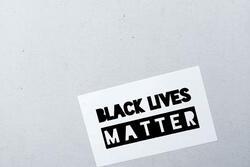Using Their Voices to Share Experiences and Combat Racism in Israel
In July 2018, Leah Hylo created a group for Ethiopian women in Israel, feeling that they needed a safe space to talk about their shared experiences. It was there that she met Tigist Mahari, her future partner in establishing the grassroots movement Call.Activit (combining the Hebrew words for “voice” and “activist”). The group began meeting regularly, studying the work of Black writers from around the world and developing a sense of community.
It wasn’t long before the murder of Solomon Teka by police increased the sense of urgency to create safe spaces for Ethiopian Israelis. In 2019, an off-duty police officer shot and killed 18-year-old Teka while he was at a playground, setting off nationwide protests by Ethiopian Israelis against racism and police brutality. The police officer was charged only with negligent homicide, which carries a maximum sentence of three years in prison. Hylo and Mahari hoped their group would give Ethiopian Israelis a place to come together to process their feelings about these traumatic events, and to name their experiences and histories through art and culture, thereby taking control of their narratives.
Queer voices, queer theory, critical thinking, and collaboration guide Call.Activit. “We need a space that we can be women and Black, or women and queer and Black. For most of us in Call.Activit, most of the spaces that we were in were very white,” Hylo shared with me over the phone from her Tel Aviv apartment. “Our motto is for us, by us.” The collective produces texts—written by Ethiopians, for Ethiopians—that replace old narratives with ones that more accurately reflect the variety of Ethiopian Jewish experiences. The first issue of the magazine published by the collective was about the Black body— specifically, the experience of being in a Black woman’s body.
“Our main goal is to give people words to their feelings. When you feel something and don’t know the word, it’s not real, which makes you feel gaslit,” Hylo said. “Our narrative as Ethiopian Jews is absent from the Israeli narrative.” Often, she explained, Ethiopian Israelis don’t get to tell their own stories. Instead, their stories are told primarily by Ashkenazi Jews.
In 1991, for example, the New York Times ran a story about a woman named Susan Stern, who was sent by her employer, the United Jewish Appeal, to witness Operation Solomon, the emergency airlift of thousands of Jews from Ethiopia to Israel. When she returned home, she felt compelled to tell the story of these refugees—whom she described as "people from the 17th century coming off a plane into the 20th century,” people with "beautiful, stunned black faces" who were "home now after 2,000 years of waiting."
Hylo thinks narratives like these, told by those outside the Ethiopian community, promote racism and prejudice in Israel and beyond. “One is the idea that we were very passive, the narrative that the white Israelis came to save us and take us in. In real life, Ethiopian activists did a lot of work so that Israel will agree to bring us—for years. Via contact with Jewish communities…all over the world. It’s not correct—it’s a lie,” says Hylo. Call.Activit is trying to remedy the lack of information and misinformation about Ethiopian Jews by publishing more content via magazines and social media, as well as hosting art exhibitions and social events.
Call.Activit wants to address mistreatment of Ethiopian Jews. Hylo emphasizes that Ethiopian Jewish practices are legitimately Jewish, even though they aren’t always regarded that way in Israel. “The Judaism of the Ethiopians is very ancient Judaism,” she said. “But Israel is a very white, Orthodox country" that has often rejected Ethiopian Jews.
This attitude is evident in the way that the Israeli rabbinate forced Ethiopian Jews to convert before considering them “real” Jews, and the continued devaluation of Ethiopian Jews and Ethiopian Judaism in Israel. Because Ethiopian Jews have distinctive religious practices, they have often been treated as “less than” other Jews.
There have also been repeated human rights abuses against the Ethiopian community in Israel. Hylo points to police brutality; officials coercing or deceiving Ethiopian women into taking contraception; discrimination in education; and degrading religious “re-education” as examples. “There is racism everywhere in Israel,” she says. “In this way, it’s very similar to the United States.”
One way Call.Activit engages in anti-racist work is by encouraging its members’ healing engagement with their culture. “Our tradition and culture—we’re talking a lot about it,” Hylo says. "The main thing that we take from our culture...is the community. Without the community, we can’t really survive here. That’s why Call.Activit is important to me. It’s a community. We’re talking about what we’re going through, for better or for worse—inside the community and outside.”
You can follow Call.Activ.it on Facebook, YouTube, and Instagram and learn more about them at their website.
This piece was written as part the Jewish Media Fellowship through New Voices Magazine.







